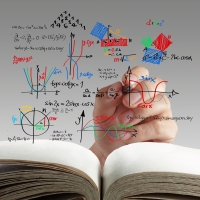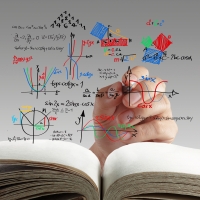
There’s a great scene in the 1980’s movie When Peggy Sue Got Married. Kathleen Turner’s time travels go back to high school. Already having lived much of her adult life, she confidently tells her math teacher, “Mr. Snelgrove, I happen to know that in the future I will not have the slightest use for algebra.” 
Sadly many of today’s teenagers feel exactly the same way. They haven’t lived their lives yet, but they feel confident that much of what they’re learning in school is completely irrelevant.
Having shepherded one daughter through high school and being halfway through the process with another, I’ve noticed that school is getting harder, and it also seems less relevant. At least to the people attending it.
This isn’t a rant against teachers. I love teachers. My mother was a teacher. My grandmother was a teacher. The disconnect between subject matter taught in school and real life isn’t the fault of teachers. It’s the result of a nationwide overemphasis on content and underemphasis on context.
We’ve made test scores our God, and we’re sacrificing love of learning at the altar of rote memorization.
Thirty years ago it may have been important to memorize facts. But now we have all the information we could ever want, in our pockets.
It’s no longer about what you know; it’s about what you can do with what you know.
Below is an excerpt from one of my favorite public school teachers, Dr. Bob Patrick, an

award winning language teacher who connects the dots to demonstrate the relevancy of Latin (yes Latin).
He writes,
“How aware are you of the presence of electricity in your life? You know it’s there, yet in most of your daily life interactions, you depend on its presence without thinking too much about how it works. If there’s some malfunction there’s always someone to call. But, what if there weren’t? Can you imagine a day when all the people who know how the electrical infrastructure works no longer existed because we so took electricity for granted that we simply didn’t teach anyone how electricity and the infrastructure works? How foolish would we be?
Did you know that the ancient Romans had running water and extensive sewage systems? But centuries later, a time came when no one in Europe knew how to make them work, a perfect set-up for the Plague.
Latin is the linguistic and cultural “electricity” of western civilization. It connects the dots of meaning between all of the major and many of the minor languages of the West. No other language does that the way that Latin does. Ancient Roman civilization, cultural traditions, religion, literatures, political structures, games and sports, even superstitions all inform and support what has emerged and continues to emerge in the countries of the West to this day. The founders of the United States were no less politically varied than our politicians are today, and yet every single one of them was a classicist who read and wrote both Latin and Greek. They understood the literary and philosophical traditions of the West. How many of our current political leaders know enough about that kind of “electricity” to help repair a failing political system today?”
superstitions all inform and support what has emerged and continues to emerge in the countries of the West to this day. The founders of the United States were no less politically varied than our politicians are today, and yet every single one of them was a classicist who read and wrote both Latin and Greek. They understood the literary and philosophical traditions of the West. How many of our current political leaders know enough about that kind of “electricity” to help repair a failing political system today?”
Dr. Patrick makes his subject relevant. Meaningful learning doesn’t show up on a bubble test, it shows up in life. If we want leaders, we’re going to have to stop telling kids what to think, and start teaching them how to think.
Comments are closed.